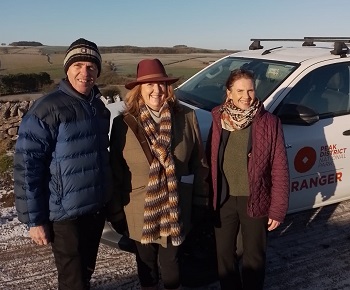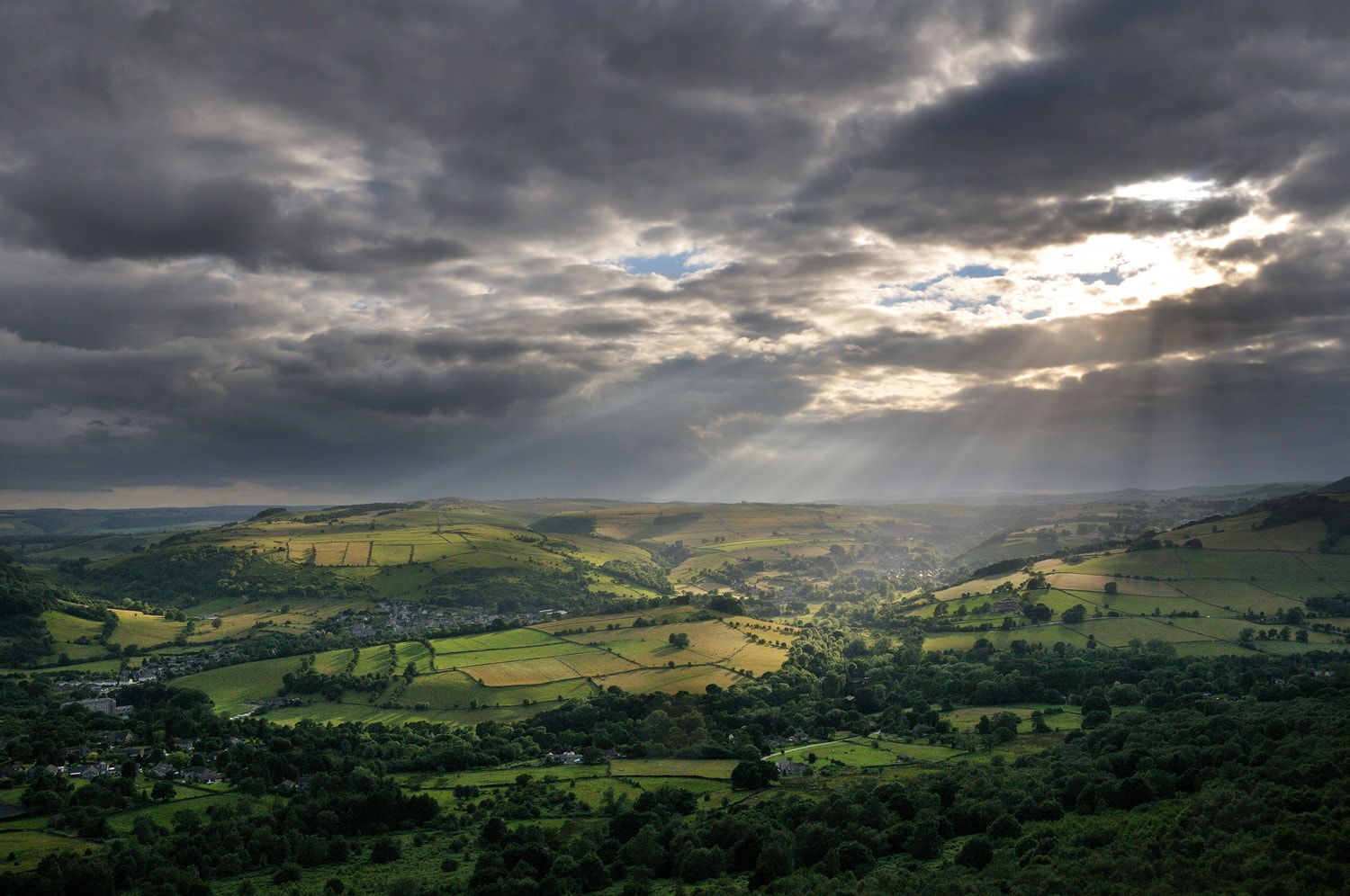National Parks minister sees farming projects in action during Peak District visit
This is an archived press release
Wednesday 21 December 2022
 Trudy Harrison, Minister for Natural Environment and Land Use, met with Peak District farmers, local MP Sarah Dines and senior staff from the National Park Authority during a visit to the White Peak, in Derbyshire.
Trudy Harrison, Minister for Natural Environment and Land Use, met with Peak District farmers, local MP Sarah Dines and senior staff from the National Park Authority during a visit to the White Peak, in Derbyshire.
Ms Harrison, whose portfolio as Parliamentary Under Secretary of State includes responsibility for National Parks and Areas of Outstanding Natural Beauty (AONBs), was welcomed to a number of projects being led by the National Park Authority under Defra’s Farming in Protected Landscapes Programme (FiPL).
As well as visiting a recently restored lime kiln at Minninglow the minister saw where access improvements, tree planting and changes in land management are contributing to the enhancement and safeguarding of local landscape character as well as supporting nature recovery.
The National Park Authority is currently developing more than 150 projects under the FiPL programme; from farm business diversification to habitat restoration, with over £2.3m expected to be invested through the programme in the Peak District by March 2024.
Ms Harrison was joined by Sarah Dines MP, Sir Richard Fitzherbert, Chair of Visit Peak District and Derbyshire, Peak District National Park Authority chair and Youlgreave Parish Councillor Andrew McCloy, and recently appointed new CEO of the Authority, Phil Mulligan.
As well as a farm visit and meeting community representatives from the area, the minister also enjoyed a conversation with visitors to the High Peak Trail, who were making use of personally-adapted mobility bikes on the traffic-free, all user route. The Authority itself is preparing to introduce new equipment at its own bike hire centres in early 2023, which will mean more people with a range of mobility challenges can gain health and wellbeing benefits from being outdoors in the National Park landscape.
Alongside practical projects on the ground, the minister was introduced to the unique environment of this particular part of the White Peak, where exposed uplands belie a landscape that is often significantly more agriculturally productive than other parts of the Peak District.
Trudy Harrison, MP said: "It’s hugely rewarding to come to the Peak District to see first-hand the impact our Farming in Protected Landscapes programme is having on rural communities. We know that National Parks such as the Peak District will be pivotal in meeting our international commitment to protect 30% of land for biodiversity by 2030. FiPL shows how thriving nature-friendly businesses can improve nature, and people’s access to it, while complementing the special character of our Protected Landscapes.
“I will continue to work with the National Park as well as the many stakeholders to manage the interdependent challenges of protecting our natural environment whilst ensuring access for all, support for farmers and growth of rural economies”
Andrew McCloy, chair of the Peak District National Park Authority said: “The Farming in Protected Landscapes programme has been particularly welcome in providing an opportunity for us to engage with farmers and landowners who may not have had the confidence or detailed knowledge to undertake projects like this in the past. Whether that be in cultural heritage, trialling new land management approaches or telling their story as part of welcoming visitors to the National Park.
"We are already seeing the fruits of the first 18 months of individual project delivery, and our teams at the National Park remain almost uniquely placed to offer the expertise and intimate understanding of the Peak District landscape to drive the success that the FiPL scheme can offer."
Sarah Dines MP added: “I was delighted to invite Trudy Harrison MP to visit beautiful Derbyshire Dales. We were able to view our stunning Peak District countryside and to discuss the challenges facing those farmers in the White Peak who are committed to producing great food and to enhancing our natural world. The farmers’ enthusiasm for driving forward was evident and we were also able to view an excellent project of a lime kiln restoration. The mixture of our industrial heritage, the natural world and farming is very special and is what makes the working Peak District so unique.”
“Kick-starting new and sustainable farming businesses is also a key part of the FiPL programme, with several projects already underway across the Peak District including pop-up campsites, shepherd hut accommodation, butchery facilities and improved educational access for schools and young people to the farm landscape.”
The FiPL programme also aims to provide new perspectives on farming; as landowners as land managers, along with the National Park Authority respond to the Government’s 25-year Environment Plan.
A number of case studies from the Farming in Protected Landscapes programme across both the UK and the Peak District can be found on the National Park Authority’s website at: Case studies - Farming in Protected Landscapes 2022: Peak District National Park

